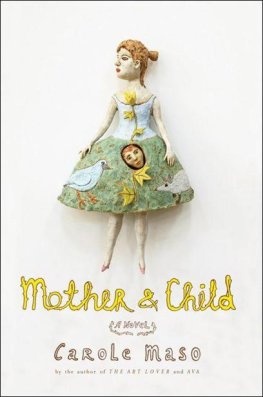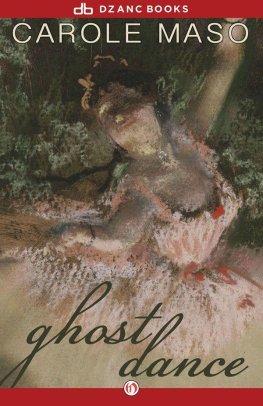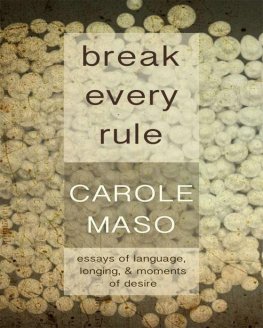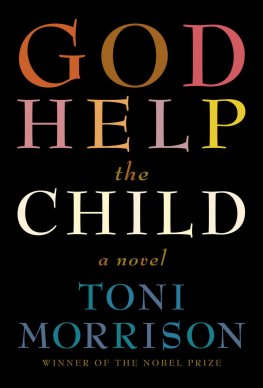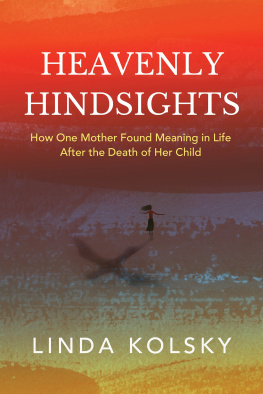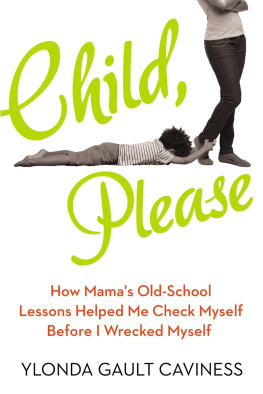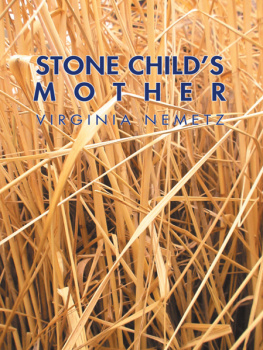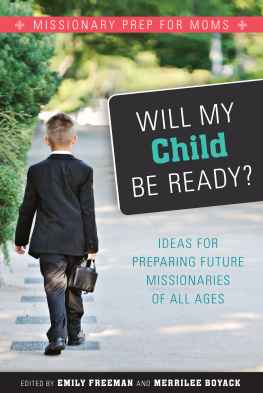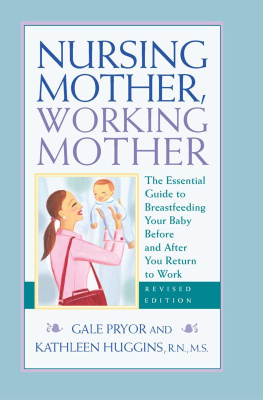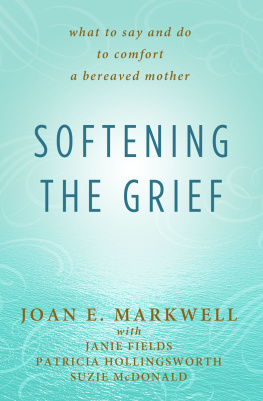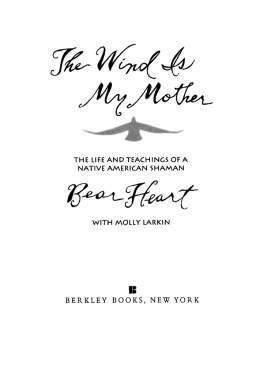Carole Maso
Mother and Child: A Novel
As we fall through the
Terrible Beauty of Time
Light floods the Childrens Garden
for Nana and Rose
And Music moves through the Hearts Dark Atrium
for Papa
And for Tata, at the Vortex
Hansel, in the Dark Wood
And in the Soulstorm, Paul.
In memory of the disappearing men,
who were my friends:
Liam Rector
Jason Shinder
David Foster Wallace
Romulus Linney
Peter Jennings
Daniel Simko
David Markson

THE GREAT WIND came and the maple tree that had stood near the house for two hundred years split in half, and from its center poured a torrent of bats. Inside, the child was stepping from her bath and the mother swaddled her in a towel. Night was all around them. The child thought she could feel the wind moving through her and the places where her wings were beginning to come through. Soon it would be the time of the transformation, the mother said. The child said she was almost ready, but she was not ready yet.
Before bed the mother told the child a story. When your body begins to transform, you will bleed in a new way each month for several days. The child pictured herself as a fountain: a mermaid or a dolphin or a fish spouting blood and magnificence. She closed her eyes. In the Childrens Garden, the first rose was about to open. The childs tooth was loose. She tinkered with it and listened to the mother and smelled her hard like an animal and loved her with all her heart. She felt happy to be alive in the blood conversation and in the night and the world that grew deeper and stranger and somehow brighter with her mothers words. She held her arms open to the night, but her eyes closed; she could not hold on to waking life any longer.
The mother looked at the sleeping child before her and indulged herself for a moment in the illusion of stasis. For a full minute nothing changed.
That evening, in the hours still left to her, after the child was asleep, the mother felt at the mercy of all things: the wind, the tree, the story, the childs beautiful and curious face, the rate at which the rose opened. Out the window, pure light flooded from the tree. She tried to look away, and though it filled her with a certain dread, she could not. Whether she was turned toward the tree or away from it, it did not matter now. The world possessed the mother and not the other way around: she did not possess the world. She closed her eyes but something in the empty space above her head was emphatic and hovered and would not let her rest.
Like so many others, she had fled the burning city and returned to this dark wood, but she wondered now if by choosing to come back here to the place of her childhood, she was putting them at risk in some way. No one else would think that: the Valley was a paradise, and in summer it attracted many vacationers and people from the city. The Valley was verdant and the silver river glistened and on the river there were bright boats. With this the mother must have drifted off, for when she opened her eyes, the child was standing over her, holding something glittery in her open hand.
Look, she whispered. The mother sat up. What have you got there? The child opened her hand. Oh, she said, a tooth! It was smooth and shiny and they both admired it. Open your mouth the mother said, and she saw the gap where the tooth had been. Then she turned to the darkened window and looking out she sighed, soon you will be all grown.
She remembered when the child was just a baby and was placed in the silver basin and raised up into the air, her arms and legs open like a star. Tell me that story again of the silver basin and the water and the star, the child said, and the child placed her stuffed lamb and her last baby tooth on the ledge. All blew in the wind, and the mothers story came in and out of audibility, but the star was constant, and the child listened. The night world pressed up against them. There was no way of partitioning it. The mother knew there was no safe place inside, though she did not like to think of it. You never knew what might be happening next: the cat, Bunny Boy, rushing by with a chipmunk in his jowls or a snake or worse. Even her garden, without her, in only a short time would go completely back to wilderness to loosestrife and milkweed and nettles. A tangle of wild grasses and reeds and dark brambles would take over, and in the deepening furrows, rodents, winged and not, would come in great drifts, and moths and beetles in abundance.
Yes, she said, pulling herself back from the welter, when you were a baby and had been placed in the silver basin and then raised up into the air by the feeble priest, you had opened (it was December) like a Christmas star and sin was washed away.
After the story was finished, the child retrieved her lamb from the sill and placed the tooth under her pillow, and the world, unfastened, blew by. There was much swirling and world being blown in backwards through the chimney to them, but at that moment all that mattered was the child, the tooth, and the lamb. In the distance they heard the sound of sirens. It was one of those nights, rare even in the life of a person who has lived a long time, when clarity comes. The mother looked out the window, as if something long concealed could now be seen in stark relief.
Even though it was night, bright light poured from the center of the felled tree. She had experienced such a fall into brightness only once. So much illuminated in an instant, so little time. Though the moment had not yet arrived, it was fast upon them. The child closed her eyes, and soon enough, she was asleep once more. And though the lamb and the tooth had been removed from the sill, their traces remained, insinuating their way into the mothers consciousness.
The mother would like to keep them in this moment, to stop the process now, to hold them like this a while longer, but no one was interested in what the mother wanted. Was there nothing but indifference, she wondered? She remembered last Sundays Mass. At the service, they announced that the God was not there, and His presence in the sacred species had been relegated to a static state, and the congregants reduced to a passive presence. They would have to sit with the absence. No priest available to animate the dormant God. The child had not understood.
Now all was darkness. Sometime in the night, the power had gone out. The wind had not let up. In the early morning when she opened her eyes, the empty space above her head had been filled. The night before, a flame had descended on her head in a dream. She was sure of it, and she was afraid. There was not a soul who could help her now. She heard babbling and chatter, and the child in turn began chattering in her sleep.
Something had entered the house.
LEAVES BLEW BY and branches and brambles covered the floor. The child did not know how the tree had gotten inside. She could barely move around the wreckage. As exciting as it was, she knew that a tree did not belong in the house. Suddenly she remembered the tooth and she found her way to her pillow. The tooth was gone and in its place was a sparkling Sacajawea dollar. She held the radiant head of the Indian girl and walked through an eternity of green in search of her mother. As she made her way to the kitchen with the coin and the lamb, her feet made a whispering and crisping sound that grew louder and louder until the sounds, at first so natural, became deafening: the boughs scratching and keening, and pinecones and nuts bouncing off the windows. In the violence, the child had to shout to be heard.
She decided to sing, and all other sound was absorbed by the song:

